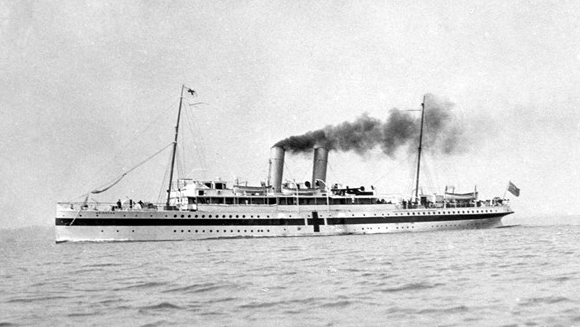The tragic tale of a footballer who served in WW1
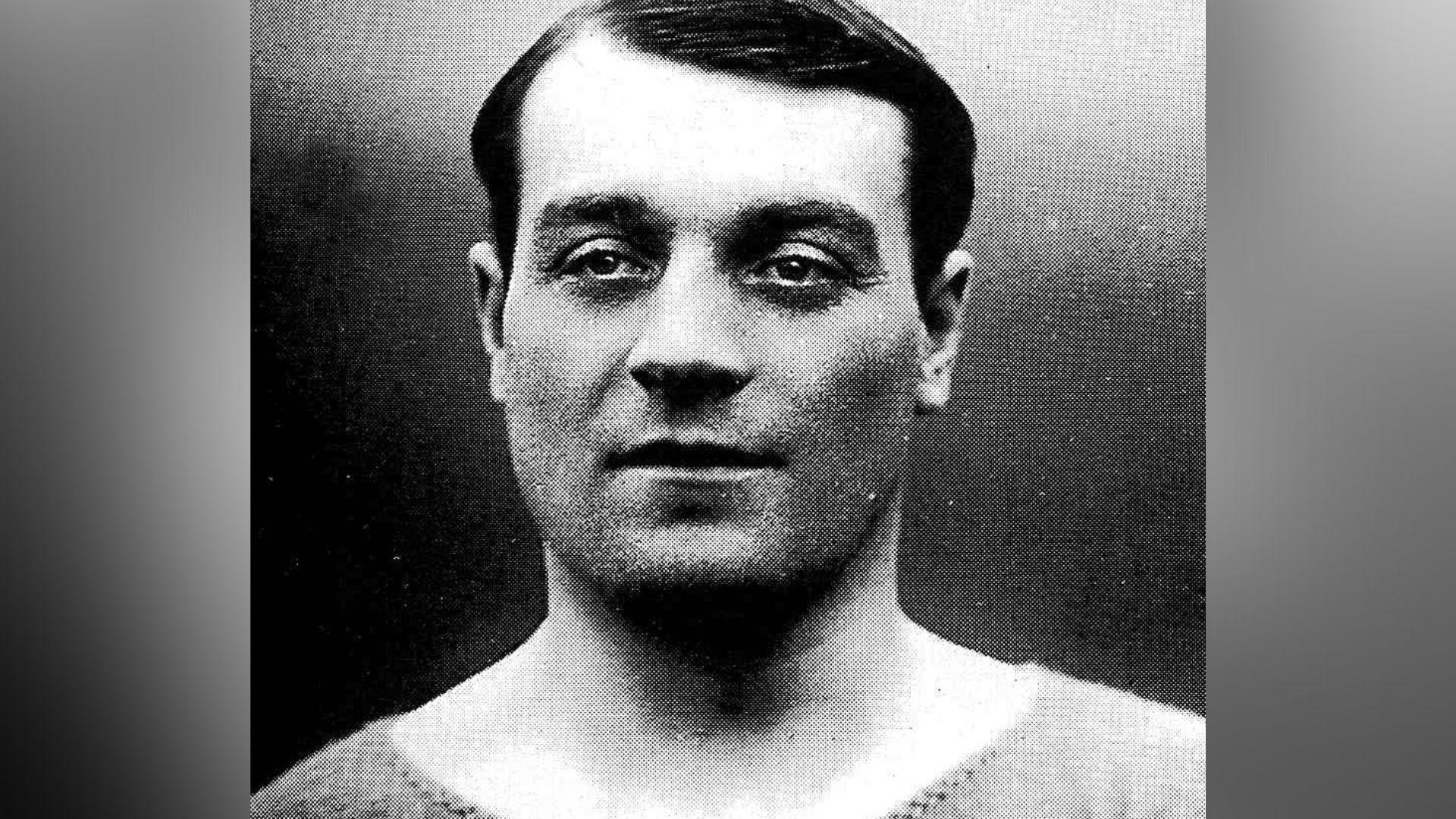
Robert "Pom Pom" Whiting was a goalkeeper for Brighton & Hove Albion.
- Published
At the beginning of World War One, debate raged about the patriotism of footballers - but one Brighton & Hove Albion goalkeeper was determined to challenge this.
Robert Whiting was instrumental in the club's early history and success, and later became a symbol of the footballers who sacrificed themselves in the conflict.
He was recognised as one of the outstanding goalkeepers of his generation and earned the nickname "Pom Pom" for his powerful kicks, likened to the rapid-fire guns used during the Boer War.
After spells at West Ham and Chelsea, Whiting joined Brighton in 1908, where he flourished for seven seasons until the outbreak of war.
Peter Daniel, from Westminster Archives, told Secret Sussex that Whiting and his teammates were "compelled" to enlist as people thought footballers "were not pulling their weight".
Mr Daniel said even famous figures like Sir Arthur Conan Doyle thought footballers were "shirkers" as football games continued for a while despite the war.
"They were unfavourably compared to rugby players, many of whom enlisted," he added.
"There was a class divide. Football was seen as 'non-patriotic' and a number of people believed they had to rectify that."
Around 300 professional footballers joined the 17th Middlesex Regiment, which was dubbed "The Football Battalion".
Listen: The tragic tale of Pom Pom Whiting
Secret Sussex
Explore more fascinating stories from Sussex
Listen and subscribe for the latest episode of Secret Sussex
In December 1915, Whiting wrote a letter to the club saying he "looked forward to playing next season".
But his hopes of returning to the pitch were never realised.
While serving in the trenches, he contracted scabies and was sent to the Eastern Military hospital in Brighton.
During sick leave, he spent time with his wife, Sarah "Nellie" Whiting, who later became pregnant.
When ordered back to the front, Whiting went absent without leave.
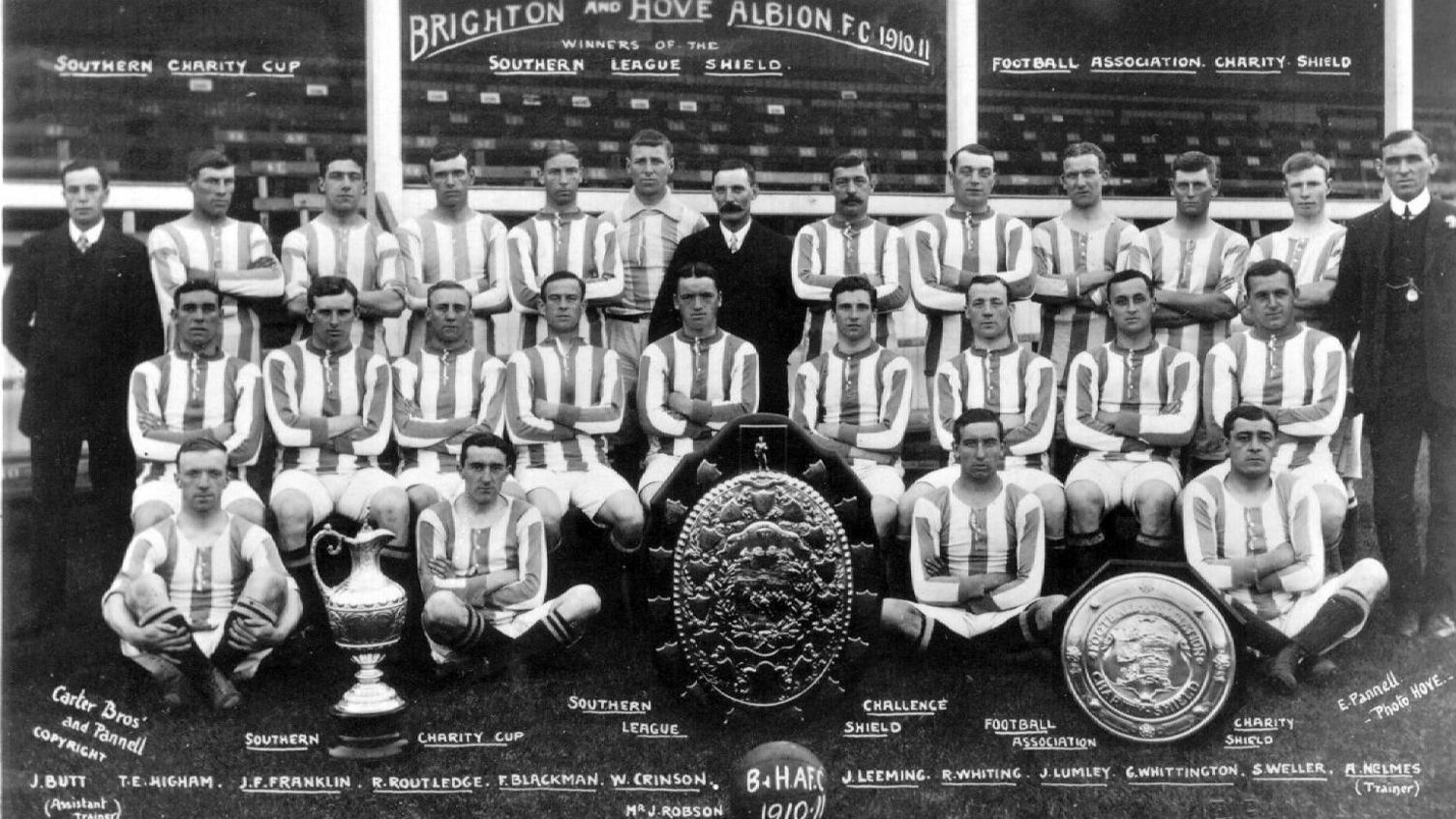
The 1910 Brighton and Hove Albion team who won the Charity Shield trophy
After 133 days, he was arrested and charged with desertion.
He pleaded not guilty.
Mr Daniel said had it been at an earlier stage of the war, Whiting could have received the death penalty.
However, his arrest coincided with the Battle of the Somme where Britain had suffered devastating losses.
"Whiting's case was passed to Gen Hubert Gough, who was involved in the Somme campaign," said Mr Daniel.
Whiting was sentenced to nine months of hard labour and as Gen Gough was preparing for the Arras campaign, he needed more soldiers.
"He signed for Whiting to return to his battalion, but was demoted," he added.
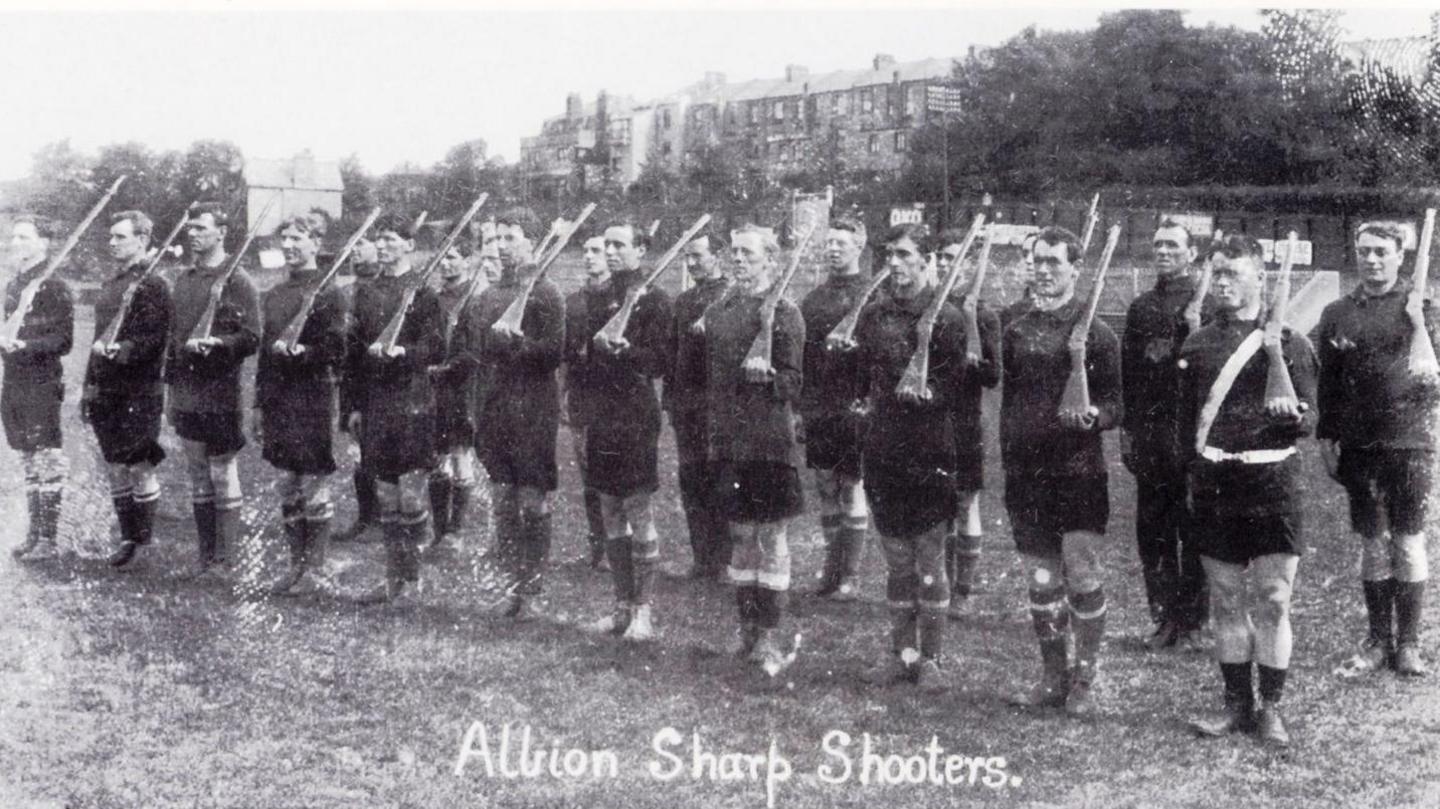
Members of the Albion squad who enlisted to serve in World War One in 1914
On 28 April 1917, the 17th Middlesex Regiment fought in Oppy Wood.
Among the 462 men killed that day was 34-year-old Whiting.
Nellie, left with three children to look after, endured rumours that her husband had been shot for desertion.
His nephew, Peter Burgess, said: "The rumours upset Nellie. But my uncle's commanding officer wrote a letter, published in the Brighton Argus, to clear his name."
Mr Daniel said back in 1910, Whiting was involved in Albion's major trophy victory, the Charity Shield.
"For many, this trophy was seen as a way of deciding who was the best team in the country.
"Pom Pom was part of it and he remains a hero for the club to this day."
Follow BBC Sussex on Facebook, external, on X, external, and on Instagram, external. Send your story ideas to southeasttoday@bbc.co.uk, external or WhatsApp us on 08081 002250.
Related topics
- Published14 September
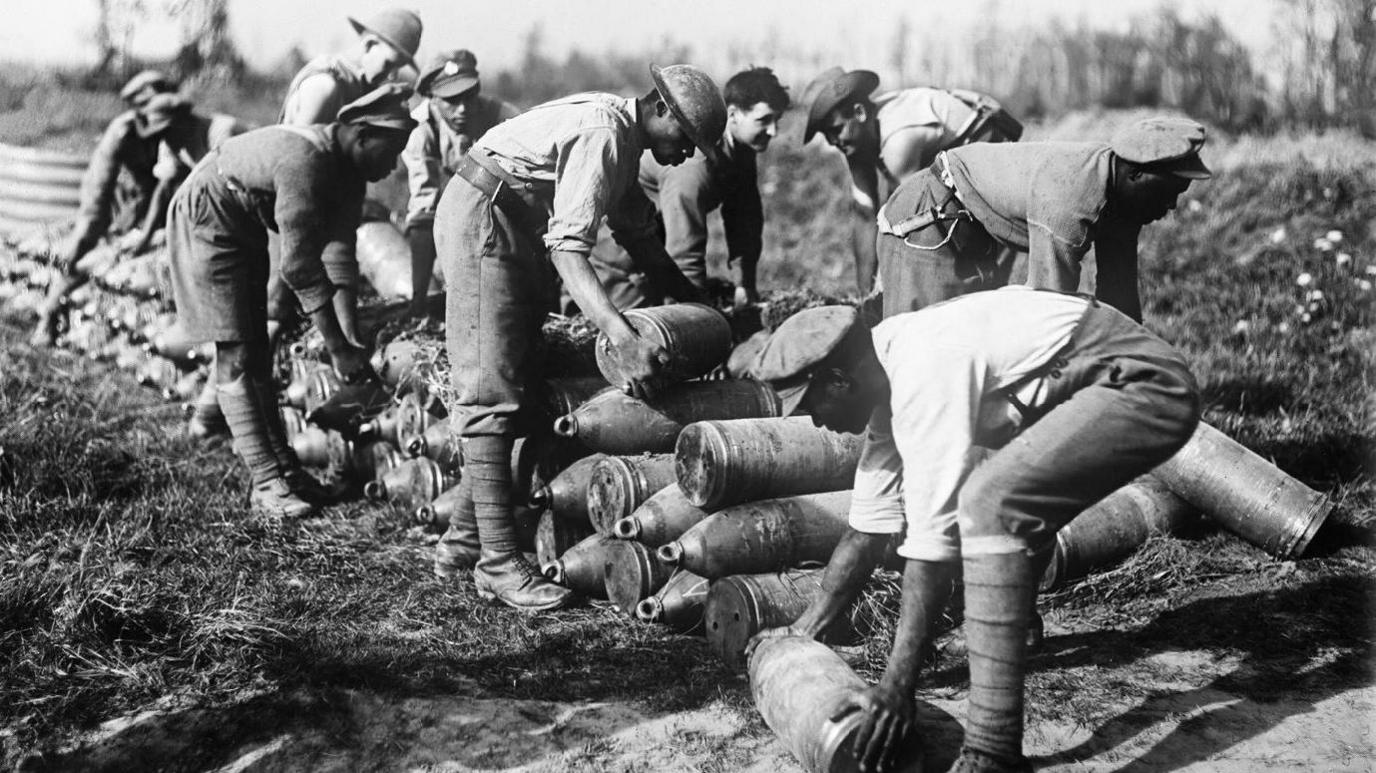
- Published15 January

- Published27 July 2024
